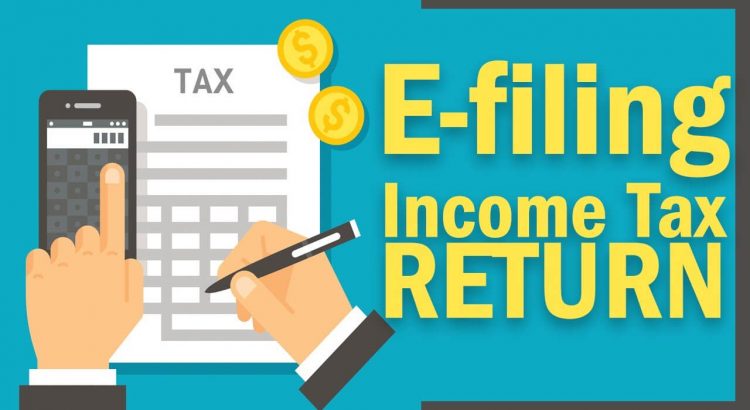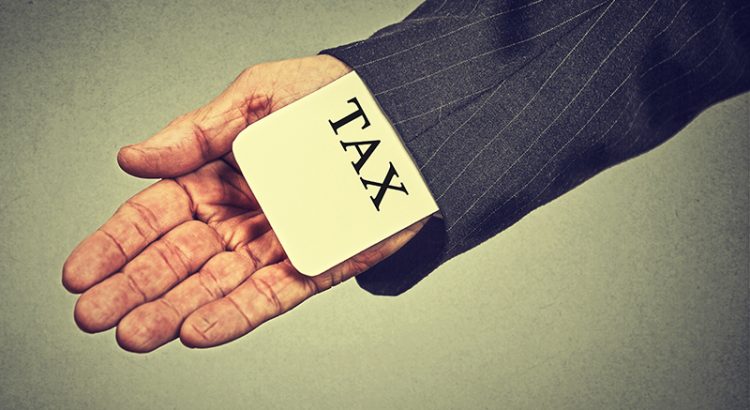FILE AN INCOME TAX RETURN IN INDIA
Do you know why people fear income tax men, because they will not spare you if you evade taxes or try to commit some acts which are against income tax rules? Fines, penalties and even imprisonment are the results of not being income tax law abiding person.
Whether business or personal, one ensures accurate maintenance of records, filing income tax returns, and following all compliances prescribed under income tax laws. In this article, we will keep our focus on who needs to file income tax returns, when, and what are the consequences of not filing income tax returns.
Not everyone is required to file an income tax return in India. Generally, if your total income for the year doesn’t exceed prescribed thresholds, then you don’t need to file Income tax return in India.
There are various forms of income tax return available at the Governments website however the type of income tax return you should select depends on the type of income. Since online income tax filing is possible therefore, efiling income tax in India can be done from anywhere in the world
Who needs to file an Income tax Return in India?
– If your gross total income (excluding deductions) exceeds the basic exemption limit of income above which tax is charged, you need to file ITR. We have listed income tax slabs and information on new tax regime that Finance minister introduced in budget 2020
– Even if income is below the limit, in certain scenarios filing ITR is mandatory. Like people spending more than INR 2 lakh on a foreign trip, withdrawing more than INR1cr in a year in a bank account or paying power bill of more than INR 1 lakh in a year
– If you wish to apply for visa or a loan
– If the taxpayer is a company or a firm, irrespective of profit or loss.
– Irrespective of your income, you may have a situation where you need to claim tax refunds, in that case it is mandatory to file a tax return. Government cannot return your tax refund in any other manner. Similarly to carry forward losses filing tax returns is mandatory.
– If you have invested in any foreign asset or have earned out of any asset in foreign or who has signing authority in a foreign bank account is also required to file ITR, irrespective of income threshold.
Income Tax Slabs & Rates 2020-2021
The Finance Minister introduced a new tax regime in Union Budget, 2020 wherein there is an option for individuals and HUF (Hindu Undivided Family) to pay taxes at lower rates without claiming deductions under various sections. Here is the new rate for FY 2019-20 or AY 2020-21:
| Income tax Slab (in INR) | Tax Rate |
| Up to 2.5 Lakh | NIL |
| 2.5 Lakh to 5 Lakh | 5% (12,500 rebate u/s 87A available) |
| 5 Lakh to 7.5 Lakh | 10% |
| 7.5 Lakh to 10 Lakh | 15% |
| 10 Lakh to 12.5Lakh | 20% |
| 15.5 Lakh to 15 Lakh | 25% |
| 15 Lakh and above | 30% |
– The tax calculated on the basis of such rates will be subject to health and education cess of 4%.
– Any individual opting to be taxed under the new tax regime from FY 2020-21 onwards cannot claim certain exemptions and deductions. Therefore one needs to make their own calculation as per old and new tax regime and calculate which one is beneficial based on the type of investments made and returns earned on those investments. Best way is to take professional advisory, for that you find a chartered accountant online who can advise you.
New tax regime slab rates are not differentiated based on age group unlike in past years. Like if the financial year 2018-19 limit was INR 2.5 lakh for general categories. INR 3 Lakh for individuals between the age of 60 years but less than 80 years and for individuals aged above 80 years, the exemption limit was INR 5 lakh.
Below is the example on how your tax could be compared if you opt for e filing income tax under a new regime for this AY 2020-21
Let’s take an example of an individual here aged 40 years has the total income of INR 11, 00,000 and investments made are: 80C of INR 1, 50,000 and under Section 80CCD of INR 50,000. He has claimed income tax deduction with medical and Leave travel allowance of INR 50000 and HRA of INR 1, 50,000 The tax payable under new and old tax regime is as follows:
| Particulars | New system (in INR) | Old System(in INR) |
| Gross total income | 11,00,000 | 11,00,000 |
| Less: Deductions under 80C | 0 | 150000 |
| Less: Standard Deduction (Medical & Travel Allowance) | 0 | 50000 |
| Less: Deductions under 80CCD | 0 | 50000 |
| Less : HRA deduction as per section 10(13A) | 0 | 150000 |
| Taxable Income | 1100000 | 700000 |
| TAXES PAYABLE AS PER SLAB RATES | ||
| 0-250000 | 0 | 0 |
| 250000-500000 | 12500 | 12500 |
| 500000-750000 | 25000 | 40000 |
| 750000-1000000 | 37500 | 0 |
| 1000000-1250000 | 20000 | 0 |
| TOTAL TAXES | 95000 | 52500 |
Income tax return filing due date:
The due date for filing income tax returns depends on the type of business you have or the category of taxpayer you are. Normally the due date is the time limit by which your income tax returns can be filed without any late fee or penalty. The taxpayers filing their return beyond such due date will have to pay interest and penalty under prescribed section of income tax laws.
Here are the due dates for AY 2020-21
| Category | Due date |
| Individual/HUF/AOP/BOI | 31st July,2020 |
| Business (Audit not required) | 31st July,2020 |
| Business (Audit required) | 30th Sep,2020 |
| Business (TP report required) | 30th Nov,2020 |
FAQ’s
Is online income tax filing mandatory?
Yes it is mandatory to file the income tax returns online for all the registered taxpayers. However, manual income tax returns can be filed by those who are above 80 years of age and do not have any income from regular business or profession.
How to claim tax refund online?
The Income tax department doesn’t automatically issue refunds without a tax return, so if you want to claim any tax refund due to you, then you should go for online income tax filing
Remember, with CaonWEB income tax filing services, we’ll ask you simple questions and determine the best filing method for you. We’ll find every tax deduction and credit you qualify for to get you the best tax refund.
What are the steps to file my Income Tax return for online income tax filing or efiling income tax?
– Collect required documents such as TDS certificates (Form16/16A), capital gains statements
Download and check Form 26AS.Chartered accountants advise that one should keep track of your Form 26AS during the financial year to avoid any discrepancies at time of filing ITR.
– Compute total income for the related financial year. Total income is computed by adding incomes from different heads and claiming all the relevant deductions allowed under the Income-Tax Act and setting off losses, if any. Go for professional advice if you are not aware of such things. Take help by searching for an online chartered accountant near you .
– Calculate final tax payable, if any
– Deduct the taxes that have been already paid by you through tax deducted at source, TCS and Advance Tax during the year.
– File ITR after all taxes are paid
– The last step is Verification of ITR, There are 6 ways to verify your Income Tax Return.
– Once the IT Return is processed, the I-T department inform the same to you via email to your registered email ID. In case any error are found, they may ask you to explain further or correct the mistakes made while filing the original ITR.
How do I pay taxes online while efiling income tax?
Refer this link of the Government https://onlineservices.tin.egov-nsdl.com/etaxnew/tdsnontds.jsp
Consult an online chartered accountant if you have any confusion.
What are the disadvantages of not filing income tax return?
If you file your ITR after the due date but before 31 December, a penalty of Rs 5000 will be levied. For returns filed later than 31 December 2020, the penalty levied will be increased to Rs.10,000. However for small taxpayers, the Government gives some relief, as per income tax department if the total income does not exceed Rs 5 lakh, the maximum penalty levied for delay will be Rs 1000 for small taxpayers. Small tax payers here means having income less than 5 Lakh in a year.

